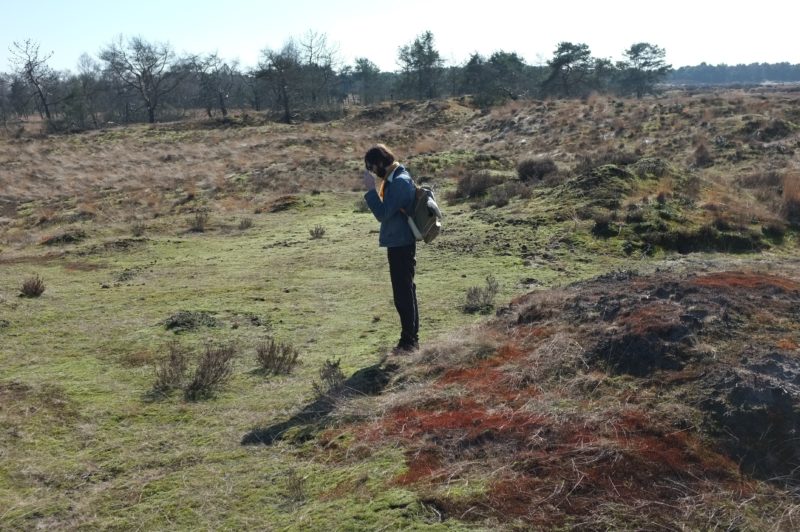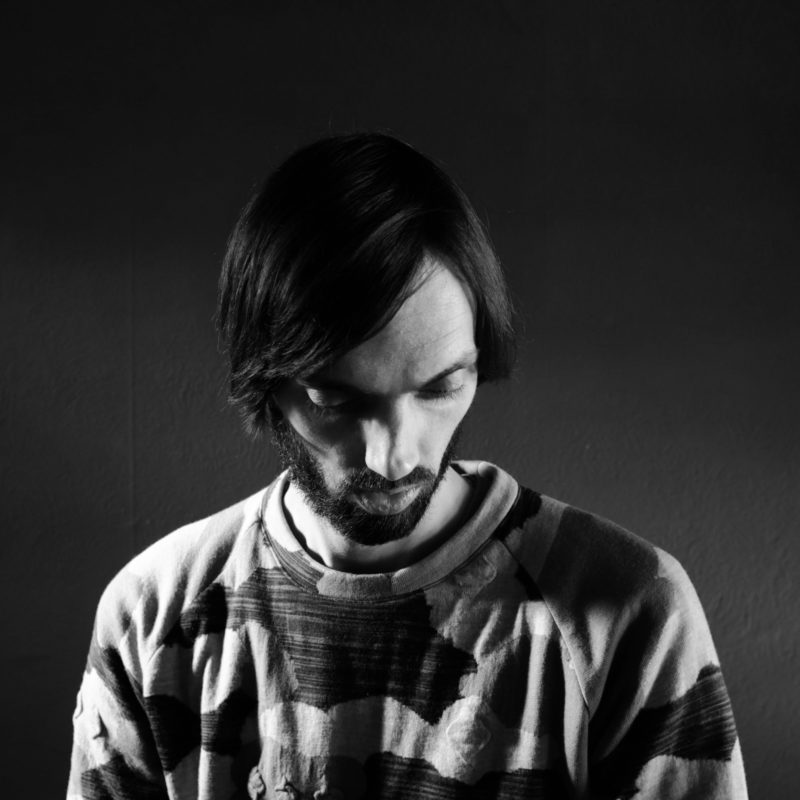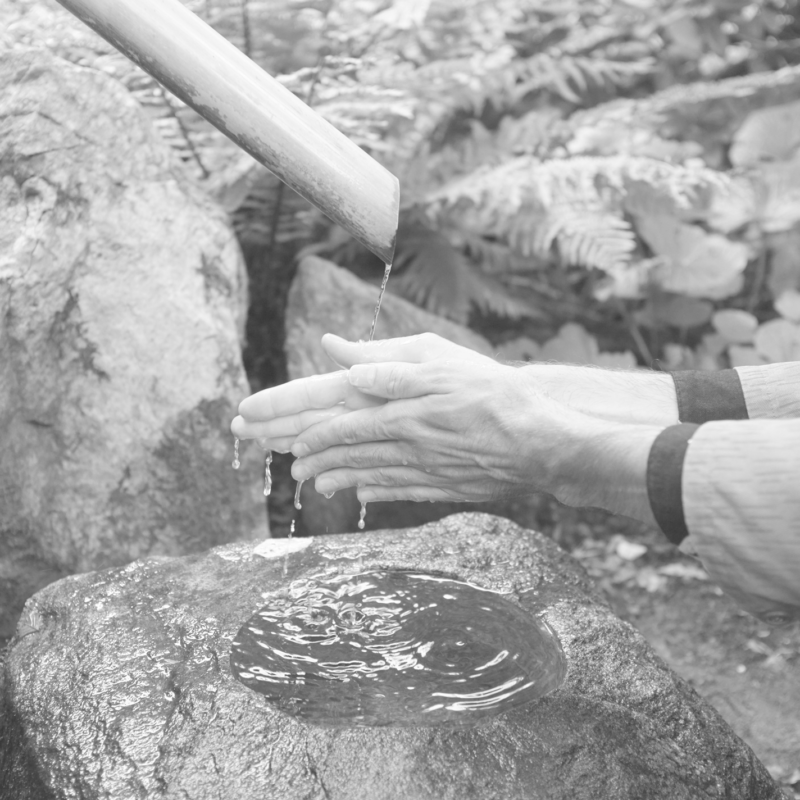David Edren

Niels Latomme
Why did you use your own name instead of your moniker?
David Edren
I don’t see it as a change. I felt it was better to release this specific type of music under my own name. Some time ago I also released Music For Mimosa Pudica & Codariocalyx, a cd (later re-released as a tape) that was included in the Earth.Rope.Pot.Plant book. It was a collaborative project of several artists that had plants as the main theme. Compared to my other works, this music was made from a completely different angle and with different instruments. DSR Lines for me is rather specific, and I have an implicit idea about what fits into it and what not. I also published a track as David Edren on the Christmas compilation of JJ Funhouse and soon there will be a LP on Lal Lal Lal with Underwater Music, featuring some new D. Edren tracks.
Come to think about it, most of these tracks end up in concept albums.
NL
The tape is called Electronic Gamelan Music, why are you interested in gamelan music?
DE
It inspires me, especially because the minimal composition and the repetitive character of the music have a strong distorting effect on how the listener experiences time. Also appealing: the rituals and the collective approach in which every player is just a part of a big machine. I wanted to grasp this for this tape.
NL
How do you mirror a collective approach into a solo project?
DE
To give you a rather technical answer, the way I explained it in the album’s liner notes: “All parts were pre-programmed on a number of polyphonic sequencer tracks and played and modulated in a live manner during the recording process afterwards. By separately modulating each tracks’ timing and thus manipulating the overall rhythmic structure of the piece, an effect, closely resembling an ensemble of live performers was achieved.”
At least, that was the idea and ultimate goal...

NL
The title evokes a fascination for the nonwestern, and you’re not the first who made socalled (pseudo) exotic music. What do you think about the (problematic) issues it touched upon?
DE
Of course it’s very ambiguous... The name is strongly associated with the non-western and sonically it obviously fits into the genre of new exotica.
Exoticism in music is not only a western thing. I love Indonesian psych rock from the 1970s, for instance. The current notion of a so-called problematic discourse about ethnicity is pretty strange though. I don’t feel the need to elaborate on that. Last weekend
I was talking about this with Marja Johansson (aka Tsembla). We were discussing the use of ethnic samples and instruments, without mastering them in the traditional sense. There are voices that claim that this is not ok. To be honest, I don’t follow this argument, I don’t pretend to be politically correct. In a lot of ways, I don’t feel part of current society anyhow, so why should I bother.
NL
You don’t have a problem with the assimilation of sounds and music from other cultures, regardless of the original social function? I ask this because I once saw a concert of Cut Hands which included intimate footage of people going in trance, while playing samples of burundi master drummers. I found it offensive and cynical. Not so much because black people were projected as the primitive ‘other’ (though I feel that in current times, framing people as ‘the other’ is very problematic); but because it felt like a disrespectful intrusion of their private and personal rituals.
DE
The key is to be respectful. A positive, constructive approach towards the sources that inspire you is never disrespectful. I’m not a fan of the current beliefs on political correct thinking, because it tends to generalize too much. A discussion about assimilation and appropriation, and the mechanics of power behind it is one thing, but in the end you’re practically not allowed to be inspired by non-western sources. Those are different discussions. The world isn’t pure and divided. It is in a continuous flux of interchanging cultures, why should we be so protective about the identity of cultures?
NL
You have been active for a long time, I remember seeing you play for the first time more than 10 years ago at Kavka (even with a laptop if I’m correct).
DE
I think you remember this incorrectly, I only used a laptop once.
NL
Could be, it was a long, fuzzy night, typical for the Kaspar Hauser events. Come to think of it, it was not in Kavka, but in another place.
DE
I’m actually talking about 2008, when I used a laptop on the Ultra Eczema event that was part of the Dennis Tyfus expo I Never Liked Neon. I used it as a sound module, like an external synth. This may sound like I’m against using laptops. But I have to admit that I consciously choose not to sit behind a screen for a DSR Lines concert. I’m doing this the whole day already.
NL
Why are you using old school instruments?
DE
My first contact with an analogue synth was sometime in the 1990s, with a Roland System-100 (I still own this machine). What spoke to me was not the sound per se, but the interaction with buttons, faders and patch cables. Back then I was more interested in electronic music and IDM. So at home I mostly used a computer, or a MIDI work station like the Akai MPC. If you wanted to control an analogue synth and sampled beats, you’d had to do a lot of programming. So it evolved into something very premeditated.
I released some cd-r’s back then, but I got tired of that way of working. So I changed paths and decided to start improvising instead of programming. Then I dived into the Eurorack scene and put together a modular analogue sequencer, which resulted in the albums from 2013 till now.
NL
Is this renewed interest in analogue equipment a sign of the times?
DE
It’s true that a lot of artists clearly are inspired by organic and analogue structures, not only in music. You have, for instance, a revival of old crafts like Japanese inspired ceramics, or plant projects like urban farming. It seems that this is part of a broader movement that has an aversion against the capitalist way of living.
NL
John Olson claimed that he wasn’t very fond of the evolution of noisers into modular synthesizer music, because he thought the musicians became too focussed on themselves, and that the com munal aspect of music production disappeared.
DE
I’ve never been a ‘noiser’, I don’t feel implicated by his opinion as it has nothing to do with my music. I always played in bands, parallel to my solo work. Playing together has a very specific magic about it that you can never reach when playing solo, but that works the other way around as well.
I think it’s more useful to think of it as an and-and thing instead of an or-or.

NL
You’ve been around since a long time, in what way do you feel the scene has changed?
DE
A lot has changed, because people reinvent themselves regularly, which is a good thing. But I don’t like the idea of a closed or fixed ‘scene’. Of course some people have been around for a long time, but it’s important to open yourself for new influences and new people. It’s not a race. I like the idea of parallel musical universes outside the mainstream, so I’m always eager to be in contact with other artists and creative spaces.
NL
Maybe it’s time for a bit of demystification. Is it true that you are Edmond De Deyster?
DE
Edmond De Deyster is who he is. I don’t think any one else could be him. He is like an island, a character that plays a very specific part in his albums. It’s better that he stays where he is, in the dark shadows of the unknown past.
NL
Ok, let’s talk about what’s visible then. How was your residency in the famous EMS studio?
DE
In October 2014 I went to Stockholm for the first time. I recorded Analogie van de Dageraad there, an album that was initial- ly released by JJ Funhouse and later as a 12 inch record on Ultra Eczema. Working with the enormous Buchla 200 and Serge Modular for 10 days was a very intense experience. During the same period I played on a super cool event at Fylkingen with Spencer (Clark) and Lieven (Martens). In August last year I went back for a second residency and recorded a lot of new material. The first tracks will be released on a split with Bitchin Bajas in a series of Abstrakce Records that is called The Encyclopedia of Civilizations.
NL
Anything you want to add on a topic of choice?
DE
On The Gathering of Trans-Medial Publishers we will present a new Hare Akedod release. It’s something that Bent and I worked on almost secretively the past year, completely different from our solo work, but it feels just right. For me it’s also a return, so to speak, to a more composed, less organic way of making music. It’s melodic music that we are very enthusiastic about, and that we want to develop into a full album.
NL
Looking forward to that!
